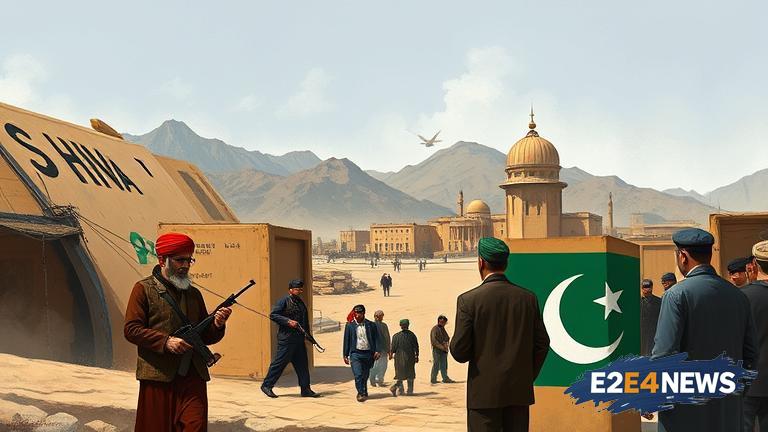The Taliban’s return to power in Afghanistan has sparked a flurry of economic activity, with China and Pakistan at the forefront of strengthening business links with the war-torn nation. As the international community grapples with the implications of the Taliban’s resurgence, Beijing and Islamabad are seizing the opportunity to expand their economic footprint in the region. China, in particular, has been actively courting the Taliban, with high-level diplomatic meetings and promises of economic investment. The Chinese government has pledged to support the reconstruction of Afghanistan’s infrastructure, including the development of the country’s mineral resources. Pakistan, meanwhile, has long been a key player in Afghan affairs, and its government has welcomed the Taliban’s return to power. Islamabad has been working to strengthen its economic ties with Kabul, with a focus on trade and investment. The two countries have signed several agreements aimed at boosting bilateral trade, including a deal to establish a joint chamber of commerce. The Taliban, for its part, has been keen to demonstrate its commitment to economic development, with a focus on attracting foreign investment and promoting trade. The group has established a new ministry of commerce and industry, which is tasked with overseeing the development of the country’s economy. Despite the challenges posed by the Taliban’s reputation and the country’s fragile security situation, there are signs that Afghanistan is poised to become a key player in regional trade. The country’s strategic location, situated at the crossroads of Central and South Asia, makes it an attractive hub for trade and commerce. China’s Belt and Road Initiative, a massive infrastructure development project, is also set to play a major role in Afghanistan’s economic development. The project aims to connect China with other parts of Asia, Europe, and Africa, and Afghanistan is seen as a crucial link in the chain. Pakistan, meanwhile, is working to develop its own economic corridor, which will connect the port city of Gwadar with Afghanistan and Central Asia. The corridor is expected to boost trade and investment in the region, and will provide a major outlet for Afghan goods. As the Taliban continues to consolidate its power, it is likely that China and Pakistan will remain key players in the country’s economic development. The two countries have a long history of engagement with the Taliban, and their economic interests are closely tied to the group’s success. However, the international community remains wary of the Taliban’s intentions, and there are concerns about the group’s human rights record and its ties to terrorist organizations. Despite these challenges, there are signs that the Taliban is committed to economic development, and that China and Pakistan are willing to provide the necessary support. As the situation in Afghanistan continues to evolve, it is likely that the country will become an increasingly important player in regional trade and commerce. The Taliban’s economic empire is still in its infancy, but with the support of China and Pakistan, it is poised to become a major force in the region. The country’s rich mineral resources, including copper, iron, and lithium, are a major draw for foreign investors, and the Taliban is keen to exploit these resources to fuel its economic development. However, the group will need to address concerns about corruption and transparency if it is to attract significant foreign investment. The international community will also be watching closely to see how the Taliban balances its economic development with its social and political agenda. As the Taliban continues to consolidate its power, it is likely that the group will face significant challenges in the months and years ahead. However, with the support of China and Pakistan, it is possible that the Taliban will be able to overcome these challenges and establish a stable and prosperous economy. The consequences of the Taliban’s economic development will be far-reaching, and will have significant implications for the region and the world. As the situation in Afghanistan continues to evolve, it is likely that the country will become an increasingly important player in global affairs.
